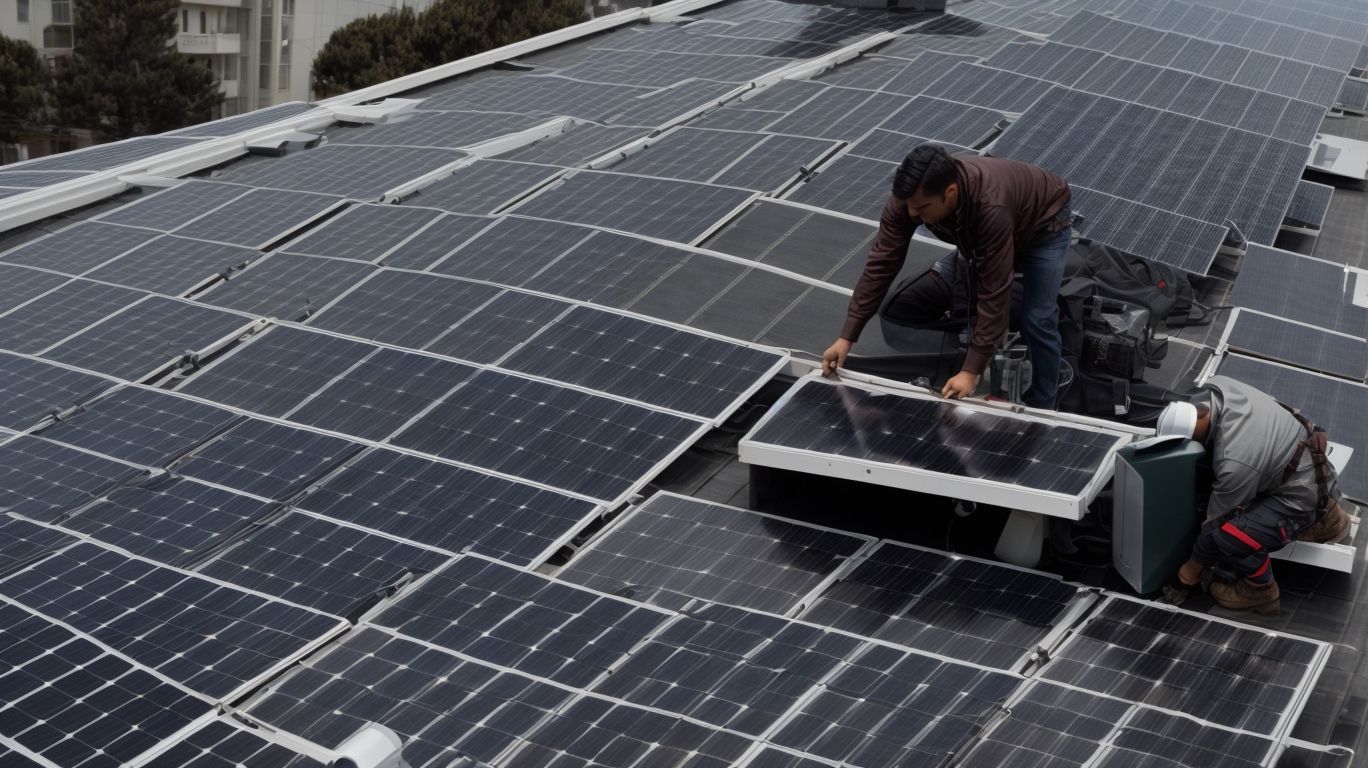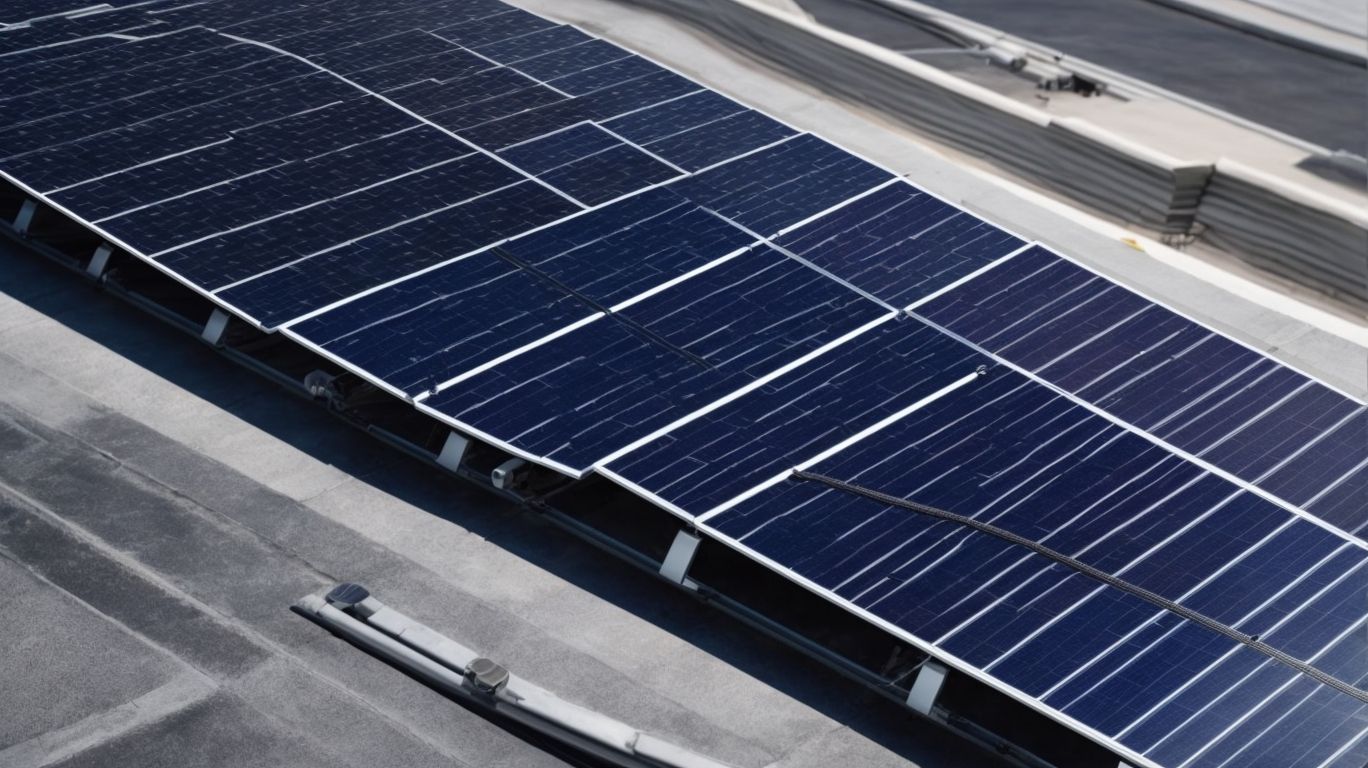
Permitting Requirements for Solar Panel Projects in SF
Curious about the process of obtaining permits for solar panel projects in San Francisco? From building permits to fire department approvals, there are several key requirements to consider.
We will explore the steps involved in obtaining a solar panel permit in SF, as well as common challenges that may arise along the way. Understanding the importance of proper permitting is crucial for the success of your solar panel project in the city.
Let’s dive in and explore the ins and outs of solar panel permitting in SF.
What are the Permitting Requirements for Solar Panel Projects in SF?
Understanding the permitting requirements for solar panel projects in SF is crucial for property owners and solar installers to comply with the city’s building codes and regulations enforced by the City Planning Department.
The City Planning Department in San Francisco plays a pivotal role in overseeing the approval process for solar panel installations, ensuring that projects align with the city’s zoning regulations and guidelines. Property owners and installers must submit detailed plans and documentation outlining the proposed solar energy system’s design and installation, including its impact on the surrounding environment.
Adherence to local building codes is essential to guarantee the structural integrity and safety of solar panel projects. By following these permitting requirements, stakeholders contribute to the city’s efforts towards sustainable energy practices and environmental conservation.
Obtaining a Building Permit
- One of the primary steps in the permitting process for solar panel projects in SF is obtaining a building permit that aligns with the solar panel design and compliance requirements.
This step is crucial as it ensures that the solar panel installation meets all the necessary standards set forth by the local authorities. Compliance with design specifications and regulatory standards not only guarantees the safety and efficiency of the solar panels but also contributes to the overall success of the project. By obtaining a building permit that reflects the accurate design plans and adherence to compliance regulations, individuals can proceed with their solar panel installations with confidence, knowing that they are following the prescribed guidelines for sustainable energy implementation.
Electrical Permit Requirements
Solar panel projects in SF necessitate adherence to specific electrical permit requirements, which often involve licensed solar contractors and compliance with renewable energy permit regulations.
These electrical permit requirements are crucial in ensuring the safety, functionality, and efficiency of solar panel installations. Licensed solar contractors play a key role in obtaining the necessary permits and ensuring that the installation meets industry standards.
It is essential for solar contractors to have a thorough understanding of local and state regulations to ensure compliance with renewable energy permit requirements. By adhering to these regulations, solar contractors help promote the growth of renewable energy initiatives and contribute to a more sustainable future.
Structural Permit Requirements
The structural permit requirements for solar panel projects in SF encompass aspects of construction compliance with solar panel installation regulations and adherence to green building codes for project approval.
Ensuring the structural integrity of the building is essential when installing solar panels to meet the established safety standards. In addition to obtaining the necessary permits for the installation, it is crucial to adhere to building codes that promote sustainability and energy efficiency. Compliance with these regulations not only ensures the safety of the structure but also contributes to reducing the environmental impact of the project. By following green building codes, the installation process becomes more streamlined, and the project stands a better chance of receiving approval from the authorities.
Fire Department Review and Approval
Prior to permit approval, solar panel projects in SF undergo a thorough review process by the Fire Department to ensure compliance with safety regulations, often involving specific permit fees and adherence to solar permitting guidelines.
This vetting process by the Fire Department is crucial in safeguarding not only the solar panel installation but also the overall safety of the property and occupants. The Fire Department examines the proposed solar panel design to ensure it meets fire safety standards, such as adequate access for firefighting and emergency response.
Permit fees associated with fire department approvals contribute to covering the costs of the review process and any necessary inspections to guarantee that the installation poses no risk of fire hazards. Following solar permitting guidelines is essential for smooth approval and installation, ensuring a secure and compliant energy system.
Planning Department Review and Approval
The Planning Department review and approval process for solar panel projects in SF involves considerations by the Planning Commission regarding solar incentives, power regulations, and energy permitting requirements.
They play a crucial role in evaluating proposed solar installations to ensure compliance with zoning regulations, building codes, and environmental standards. The department assesses the impact of solar projects on the community, including aesthetics, potential shading effects, and overall neighborhood harmony. They collaborate with utility providers to address grid integration challenges and ensure that solar systems align with existing power infrastructure. By streamlining the permitting process, the Planning Department facilitates the expansion of sustainable energy solutions and encourages the adoption of solar technology in urban environments.
Historic Preservation Review and Approval
Solar panel projects in SF may encounter historic preservation considerations during the review process, requiring thorough documentation, environmental permitting, and project approval to address such concerns.
This intersection of historic preservation and renewable energy initiatives presents a unique challenge for developers, as they must navigate regulations, conduct extensive research on the site’s historical significance, and ensure compliance with environmental guidelines.
Successful integration of solar panels in historically significant areas demands meticulous planning and collaboration among various stakeholders to strike a balance between progress and preservation.
Failure to adequately address these concerns could result in project delays, legal hurdles, and public opposition, highlighting the importance of adopting a holistic approach that considers both environmental benefits and cultural heritage preservation.
Environmental Review and Approval
The environmental review and approval stage for solar panel projects in SF evaluates factors such as environmental impact, utility connections, permitting fees, and the overall permitting process for solar panels.
These reviews play a crucial role in ensuring that solar panel installations not only generate renewable energy but also minimize harm to the surrounding environment. Environmental impact assessments help identify potential risks to wildlife habitats, water sources, and air quality, allowing for mitigation measures to be incorporated into the project design.
Considering utility connectivity ensures that the solar panels can effectively transmit generated electricity to the grid, enhancing overall efficiency and reliability. Permitting fees are necessary to cover the costs associated with regulatory compliance and oversight, contributing to the sustainable development of solar energy projects.
The comprehensive permitting process involves coordination between various stakeholders, including local authorities, environmental agencies, and utility providers, to establish a streamlined approval pathway for solar installations.
What are the Steps to Obtain a Solar Panel Permit in SF?
Navigating the process to obtain a solar panel permit in SF involves submitting comprehensive permit applications, demonstrating commitment to renewable energy, undergoing necessary inspections, and securing final permit approval.
To initiate the application process, individuals or homeowners interested in installing solar panels in San Francisco need to gather all relevant documentation, including but not limited to property details, system design plans, and proof of compliance with local building codes.
After the application submission, a key aspect is showcasing a commitment to renewable energy sources by providing information on the solar panel system’s energy production capabilities and environmental benefits.
Following this, inspections are conducted to ensure safety and compliance with regulations. Securing the permit approval signifies compliance with regulations, eligibility for solar rebates, and a significant step towards sustainable energy practices in the community.
Determine Eligibility for Expedited Permitting
Property owners and solar installers in SF can expedite the permitting process by determining eligibility for expedited permitting options, which often involve collaboration with local government entities and compliance with specific solar system size requirements.
Streamlined permitting for solar projects offers several advantages, including reduced wait times for approval and installation. Solar contractors benefit from quicker project turnaround, allowing them to take on more projects and boost their revenue streams. Local government cooperation helps streamline the process by providing clear guidelines and support. Compliance considerations ensure that solar systems meet safety and environmental standards, fostering a sustainable energy future. Understanding how system size impacts eligibility for expedited permitting enables efficient planning and execution of solar installations.
Submit Permit Application and Required Documents
Submitting a thorough permit application along with all required documentation is a critical step in the solar panel permitting process, ensuring compliance with specific permit requirements and procedural guidelines.
It is essential to carefully review the permit application instructions and checklist provided by the relevant authorities to guarantee that all necessary information and materials are included.
From site plans and structural details to electrical diagrams and manufacturer specifications, each document plays a vital role in the approval process.
By following the procedural sequence outlined in the guidelines, applicants can streamline the permit review and approval process, minimizing delays and ensuring that their solar panel projects move forward efficiently.
Thorough documentation not only demonstrates compliance with regulations but also simplifies any potential follow-up inquiries from permitting authorities.
Pay Permit Fees
Property owners and solar installers in SF must fulfill permit fee obligations promptly to facilitate the licensing process and prepare for subsequent solar panel permit inspections, ensuring compliance with regulatory standards.
These permit fees are crucial as they help cover the cost of processing the necessary paperwork and conducting inspections to verify that the solar projects meet safety and quality standards. Payment of these fees not only expedites the licensing process but also signifies a commitment to following the proper procedures set forth by the city. Timely payment is vital to avoid delays in project approval and installation, as any outstanding fees can halt progress and disrupt project timelines.
Schedule and Pass Inspections
Scheduling and successfully passing required inspections for solar panel projects in SF are essential steps to ensure building compliance, solar panel adherence, and thorough documentation for project approval.
During the inspection process, building compliance requirements are meticulously checked to ensure that the solar panels are installed in accordance with local regulations and safety standards. Inspectors will closely examine the placement of the panels, structural integrity of the mounting system, and proper electrical connections. Compliance documentation must accurately capture these details to demonstrate that the installation meets all necessary criteria.
The success of these inspections plays a vital role in gaining approval for the solar project, ultimately paving the way for clean, renewable energy generation.
What are the Common Challenges in Obtaining a Solar Panel Permit in SF?
Several challenges may arise during the process of obtaining a solar panel permit in SF, including issues related to building code compliance, historic preservation considerations, neighborhood opposition, and delays in the permit processing timeline.
Navigating the intricate web of building codes is often a significant hurdle for many individuals seeking solar panel permits. Strict regulations must be followed to ensure the safety and structural integrity of the installation.
Historic preservation conflicts can also pose a challenge, as the aesthetic impact on older buildings is carefully scrutinized. Community resistance is a common roadblock, with concerns ranging from property values to the visual impact of solar panels in the neighborhood. Delays in permit processing further compound these obstacles, extending the timeline and adding frustration to the already complex permitting process.
Building Code Compliance
Ensuring compliance with building codes is a critical challenge in securing a solar panel permit in SF, involving adherence to construction standards, green building practices, and potential reviews by the Planning Commission.
Meeting these building code requirements is not only essential for ensuring the structural integrity and safety of solar projects but also plays a significant role in promoting sustainability and energy efficiency.
By following the established construction standards and incorporating green building practices, solar installations can help reduce environmental impact and contribute to a more eco-friendly future.
The Planning Commission plays a vital role in evaluating projects for compliance with these codes, ensuring that solar developments meet the necessary criteria for approval.
Historic Preservation Concerns
Addressing historic preservation concerns is a significant challenge in the solar panel permitting process in SF, requiring adherence to specific installation regulations and environmental preservation regulations to mitigate potential conflicts.
Ensuring regulatory compliance not only protects culturally significant sites and historic structures but also maintains the integrity of the surrounding environment. By following established guidelines, solar projects can coexist harmoniously with historical preservation efforts, fostering sustainable development practices.
Proactive measures, such as conducting thorough environmental impact assessments and consulting with preservation experts, play a vital role in navigating the complexities of balancing modern energy initiatives with preserving the past.
Effective communication and collaboration among stakeholders are essential to find innovative solutions that honor both the historic significance of a location and the need for renewable energy sources.
Neighborhood Opposition
Neighborhood opposition poses a notable challenge to solar panel projects in SF, necessitating proactive steps to ensure community support, compliance with permit requirements, and alignment with solar panel installation guidelines.
- By fostering open communication channels with residents and addressing their concerns transparently, solar installers can build trust within the community.
- Proper adherence to permit regulations and following guidelines set by industry standards not only ensures the legality of the installations but also promotes a sense of security among neighbors.
- Engaging in dialogue and educating the community on the benefits of renewable energy can help alleviate fears and misconceptions surrounding solar projects, fostering a more positive outlook towards sustainable initiatives in the neighborhood.
Permit Processing Delays
Delays in the permit processing timeline present a significant challenge for solar panel projects in SF, necessitating proactive management of the permitting process, timely application submissions, and adherence to solar panel application requirements.
These delays can have cascading effects on project timelines, leading to increased costs and missed opportunities for energy savings. To navigate through potential delays effectively, project managers should prioritize clear communication with permitting authorities, ensuring all necessary documentation is accurately completed and submitted promptly.
By staying informed about the latest regulations and criteria for solar panel installations, project teams can streamline the approval process and avoid setbacks. Implementing efficient process management strategies, such as utilizing online permit portals and tracking systems, can also help expedite the approval process and keep projects on schedule.




No Comments